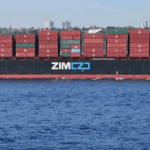Libya’s eastern-based House of Representatives is preparing to vote on whether to ratify a 2019 maritime memorandum of understanding (MoU) signed between Turkey and the Tripoli-based Government of National Accord (GNA), Bloomberg reported Thursday, citing people familiar with the matter.
The maritime accord, signed in late 2019, sought to delineate maritime zones between Turkey and Libya. At the time, the deal drew international attention because the two countries do not share opposite coastlines. Greece and Cyprus quickly protested, arguing the agreement disregarded established maritime law by failing to account for the exclusive economic zones (EEZs) and continental shelf rights of Greek islands, including Crete and Gavdos. The European Union also expressed opposition, noting the accord conflicted with the UN Convention on the Law of the Sea (UNCLOS).
For several years, eastern Libya’s authorities, aligned with Gen. Khalifa Haftar, opposed the agreement. Turkey had provided military support to the Tripoli-based government during the civil conflict, putting Ankara and Haftar on opposing sides of Libya’s internal divide. A vote in favor of ratification by the Benghazi-based House of Representatives would mark a notable shift in the region’s political alignments, suggesting a potential opening toward closer ties with Ankara.
The development coincides with symbolic outreach by Turkey, including the visit of the Turkish frigate Kinaliada to Benghazi this week, following a stop in Tripoli. Analysts interpret the naval visit as part of Ankara’s broader strategy to strengthen its diplomatic and security presence across both western and eastern Libya.
Ratification of the MoU would allow Turkish companies to pursue hydrocarbon exploration and possible development in offshore areas claimed by both Libya and Greece. Athens maintains that the agreement is “illegal and baseless,” emphasizing that any maritime boundary should follow a median line between Crete and the Libyan coast, consistent with UNCLOS principles. Supporters of the agreement argue it could expand Libya’s energy partnerships and bring new investment opportunities at a time when the country is seeking to rebuild infrastructure and stabilize its economy.
The accord remains a flashpoint in the Eastern Mediterranean, where overlapping claims have fueled diplomatic disputes and competing exploration activities in recent years. Greece has sought to counterbalance Turkey’s position through agreements with Egypt and Italy, and has also lobbied regional and EU partners to oppose the MoU. Earlier this year, reports indicated that Athens reached out to Cairo to discourage Haftar from endorsing the agreement.
Should the eastern parliament proceed with ratification, it would mark a new stage in Libya’s divided political landscape and could reconfigure the dynamics of Eastern Mediterranean energy exploration. The outcome may also influence broader negotiations over maritime boundaries, regional security cooperation, and foreign investment in Libya’s energy sector.



